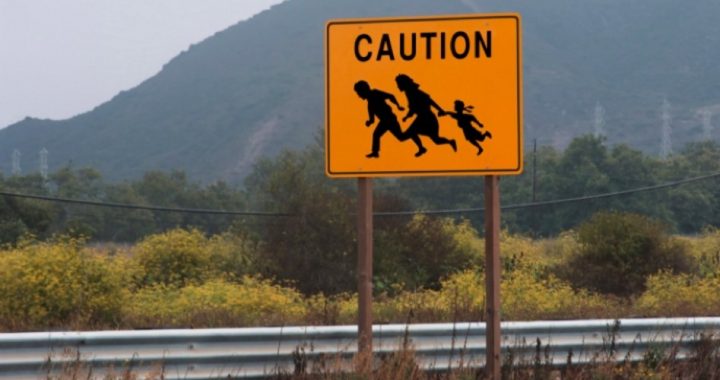
According to the New York Times, President Obama will discuss during his State of the Union address on February 12 his plans to reform the U.S. immigration system, including a path to citizenship for illegals in the country.
Following his reelection in November, President Obama said that immigration reform would be a significant item on his agenda for his second term, and he expected that a bill would be introduced in Congress shortly after his January inauguration.
“We are still assessing our options; no decisions have been finalized and as a result it would be premature to speculate — reports to the contrary are inaccurate,” a senior administration official told Reuters.
Despite opposition from Republicans to pass immigration reform in separate parts, President Obama and Democrats intend to push through one large comprehensive bill. A White House aide indicates that Democrats will oppose any measure that does not provide the opportunity for illegal immigrants to obtain legal status one day.
According to the Times, a “bipartisan group of senators” has been meeting to write the bill, which is expected to be introduced as early as March with the hopes of a Senate vote by August.
“This is so important now to both parties that neither the fiscal cliff nor guns will get in the way,” stated Senator Charles E. Schumer (D-N.Y), who is leading the talks on the immigration bill. “This is a bottom line,” he added. “The Democrats have made it clear we will not accept a bill without a direct path to earned citizenship.”
Latinos turned out in record numbers in the last election, casting 71 percent of their votes for Obama, prompting Republicans to announce that the GOP would begin to take a more practical approach to immigration.
“Republicans must demonstrate a reasoned approach to start to rebuild their relationship with Latino voters,” declared Clarissa Martinez de Castro, the director of immigration policy at the National Council of La Raza, a radical left-wing Latino organization. “Democrats must demonstrate they can deliver on a promise.”
But some critics contend that maintaining that promise would be at the expense of the American people. John F. McManus, president of The John Birch Society, pointed out during his “Stealing the American Dream” speaking tour in 2010 that Article IV, Section 4 of the U.S. Constitution states it is the role of government to “protect each of the states against invasion.” McManus posed the question that if the presence of 12-20 million illegal aliens in the United States did not constitution an invasion, what does?
In a recent interview, McManus told The New American, “It seems to be as though Mr. Obama is anxious to reward law-breakers, and what he is proposing will only stimulate more law-breaking.”
The cost of educating, incarcerating, and providing medical care to the millions of illegals in America adds up to approximately $36 billion annually. Likewise, the influx of illegal aliens has helped contribute to the disappearance of the American culture.
But as McManus observed, federal officials have pushed for so-called “comprehensive immigration reform” dating as far back as 1965. “The use of the word ‘comprehensive’ means amnesty in one form or the other,” he explained.
Still, the White House continues to assert that its immigration plan is not amnesty because it includes fines, the repayment of back taxes, and other obstacles before illegals may obtain legal status.
The New York Times reports,
The president’s plan would also impose nationwide verification of legal status for all newly hired workers; add visas to relieve backlogs and allow highly skilled immigrants to stay; and create some form of guest-worker program to bring in low-wage immigrants in the future.
Ironically, Obama’s plan is similar to one proposed by Senators John McCain (R-Az.) and the late Ted Kennedy (D-Mass.) in 2005/6, which then-Senator Obama was accused of sabotaging. McCain aide Mark Salter recalled that Obama proposed several amendments on behalf of the AFL-CIO that killed the guest-worker provisions of the proposal. He added, “[(Obama] not only refused to oppose the amendments that would hurt the bill’s chances of passage, but actually sponsored some of them. His actions were not the only cause of the immigration reform’s failure to pass the Senate that year, but they certainly contributed to it.”
Likewise, the late Robert Novak reported at the time that Obama cast the decisive vote for an amendment ending the temporary worker program opposed by the unions. By doing so, he virtually ensured the failure of the reform effort.
Obama’s newfound support for such provisions underscores just how much theater is involved in politics.
Meanwhile, most analysts viewed these failed efforts at immigration reform as an indication that lawmakers were pursuing an impractical agenda.
Breitbart.com observes,
The failure of the 2005-6 and 2007 reform efforts—i.e. in both a Republican-controlled and Democrat-controlled Congress—produced a national consensus that immigration reform had to be preceded by meaningful efforts at border security.
But in that area, analysts note that President Obama has failed dismally.
For example, critics argued that the 1,200 National Guard troops sent to secure the border were not enough. Additionally, the Obama administration’s opposition to the Arizona immigration law proved for some to be evidence of the president’s disinterest in securing the border. Furthermore, the scandalous Fast and Furious gunwalking operation, in which ATF agents funneled thousands of weapons into the hands of the Mexican cartels, seemed to undermine any indications from the administration that border patrol was a priority.
In addition to its failure to secure the borders, the Obama administration provoked anger from critics when it ended deportations of those illegals who arrived in the United States as minors, a measure enacted by executive fiat rather than by Congress. Constitutionalists have pointed out that such an act was a clear violation of the U.S. Constitution.
Many have contended that a focus on deportations or a bigger fence is misguided. For example, former Republican Representative Ron Paul of Texas has argued that the most effective way to reduce illegal immigration is to simply stop providing illegals with free services such as education and social services. “Get rid of the subsidies,” Paul told John Stossel during a 2007 interview. “You subsidize illegal immigration, you get more of it.”




